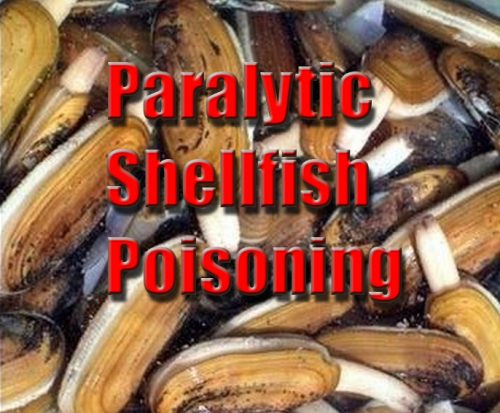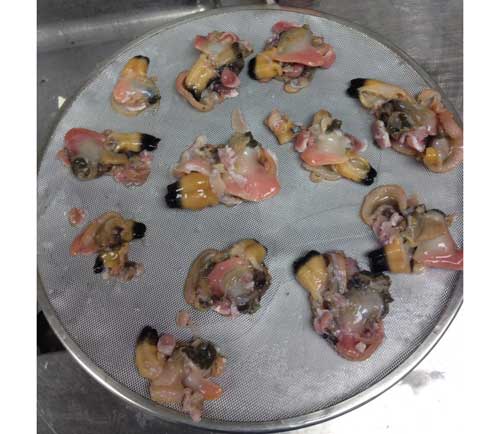ANCHORAGE — The first suspect case of paralytic shellfish poisoning (PSP) in Alaska of 2019 was reported this week to the Alaska Department of Health and Social Services Section of Epidemiology. This is a reminder that recreational gatherers should be cautious of the dangers of PSP from shellfish harvested on beaches across Alaska, especially since toxin levels detected in shellfish have been high this summer in many parts of the state.
Self-harvested shellfish may contain paralytic shellfish toxins that, if ingested, can cause illness or death. Although shellfish harvesters often look for signs of a “red tide,” there is no way to tell if a beach is safe for harvesting by looking at it or even from testing nearby. The toxins that cause PSP can be present in large amounts even if the water looks clear. Also, the toxin can remain in shellfish long after the algae bloom is gone. PSP cannot be cooked, cleaned or frozen out of shellfish. Commercially available shellfish is tested and considered safe. Anyone consuming non-commercial shellfish does so at his or her own risk.
[content id=”79272″]
The case occurred in the Perryville area on the Alaska Peninsula. The patient ate a clam that was harvested from the beach and soon developed symptoms consistent with PSP. Early symptoms include tingling of the lips and tongue, which may begin within minutes of eating toxic shellfish or may take several hours to develop. Symptoms may progress to tingling of fingers and toes and then the loss of muscle control in the arms and legs, followed by difficulty breathing. Some people experience a sense of floating or nausea. Muscles of the chest and abdomen may become paralyzed; if this happens, death can occur in a matter of hours.
Treatment is supportive care, which may require mechanical ventilation; there is no antitoxin. If you think you have PSP symptoms, call 911 or your local health care provider and seek immediate medical attention. This particular patient was sent to Dillingham, evaluated at the hospital, and has recovered.
In the past month, high PSP toxin levels had been detected in shellfish collected from the communities of Chignik Lagoon, Chignik Bay, King Cove and Sand Point, indicating a high risk for PSP throughout the Southern Alaska Peninsula region. After the case was detected, additional outreach to the area was provided by Bristol Bay Area Health Corporation environmental health staff. A warning was posted yesterday on the health corporation’s Facebook page.
For more information on shellfish harvesting and PSP, go to: Alaska Department of Health and Social Services, Shellfish Poisoning Resources



